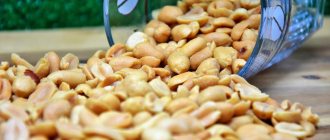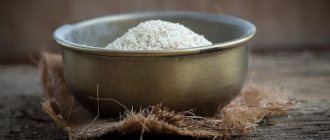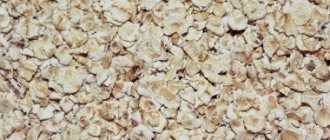Milk for puppies is a nutritious liquid that contains substances necessary for their growth, development, and health. In this case we are talking about mother's milk for newborns. As for cow's milk, it is not fat enough, not very nutritious, and is poorly digestible. Previously, when there was no choice, it was given to puppies as food, mixed with yolks. If possible, we fed goat. Now there are mixtures on sale that perfectly replace dog milk for puppies if mother's milk is not available or is insufficient.
Features of nutrition and digestion in puppies
The puppy sleeps and eats a lot immediately after birth. He eats very often, every 2-3 hours. The need for frequent feeding is associated with the rapid growth and small size of the newborn's stomach. If he eats less, various pathologies will develop.
The bitch's milk, which appears in the first days after giving birth, is colostrum. The liquid contains not only nutrients, but also immunoglobulins, which protect babies from infections. It is therefore very important that puppies have access to food as soon as possible after birth.
Antibodies come in the form of proteins that are absorbed through the intestinal mucosa. As dogs grow older, maternal immunoglobulins lose their ability to protect their babies as the intestines fully digest the compounds they contain.
2-3 days after birth, colostrum changes composition in order to fully meet the needs of the growing offspring. Its energy value is 1500-1800 kcal/l, and contains:
- fat – 9-13%;
- protein – 8-10%;
- calcium – 1400-2200 mg/l;
- iron – 2-7 mg/l;
- lactose – 3-4%;
- magnesium – 90-100 mg/l;
- zinc – 4-6 mg/l;
- copper – 1-1.4 mg/l.
After 3-4 weeks, the nutrients contained in milk are not enough for the puppy to fully develop. The composition of the liquid begins to change to prepare the baby for more nutritious solid food, feed.
Temperature
Healthy newborn puppies sleep most of the time (up to 90%) during the first three weeks, and spend the rest of the time eating. Body temperature until the 20th day is about 36.5-38 °C . During this period, the puppy must be provided with a constant, comfortable temperature regime, since he cannot independently maintain body temperature , even in a blanket.
If the puppy's body temperature is below normal, this is hypothermia. In this case, you must immediately warm it up by placing it on your body (under your jacket) . This is a long process: if the body temperature is 35 degrees, then warming up will take from 2 to 3 hours!
A chilled puppy should not be fed either mother's milk or artificial food, since the stomach and small intestines will not be able to cope with the load in this case. During the warming process, he is given a 10% glucose solution with water (3.5 ml per 100 g of body weight) once an hour. Instead of glucose, you can use a solution of honey, or, in extreme cases, sweetened water: 3/4 teaspoon per 100 ml of water.
To accommodate newborns, it is necessary to organize a “nest”. It can be a box, the volume of which is sufficient to comfortably accommodate the puppies. Disposable diapers or cotton cloth can provide additional warmth and dryness. They need to be changed when they become dirty. The optimal temperature in the nest is +37. You can use an electric heating pad with a thermostat, warm water bottles, or a medical rubber heating pad.
Important : after 7 days from birth, puppies need to cut their claws and repeat the procedure every week. This process must be done as carefully as possible so as not to touch the nerve endings.
You can and should only trim the curved tip of the claw, no more than 1 mm!
Don’t be alarmed that the puppies only eat and sleep: this is necessary, because they are growing! Babies will open their eyes between 11-15 days of life, and will begin to hear on the 18th day.
Lactose intolerance in puppies
All milk contains lactose, which makes the product sweet. Only in dog milk it is 3-4%, in cow milk - almost 5%. Lactose is processed by the enzyme lactase. Puppies produce it in large quantities. When they no longer need mother's milk, enzyme synthesis decreases, and in some dogs it almost stops.
If lactase does not cope with the task, lactose is retained in the body. It settles in the intestines, where it interacts with bacteria. Result:
- diarrhea;
- bloating;
- vomit;
- stomach ache.
Not all dogs react badly to milk; some drink without problems. But most experience various disorders. Some dogs only react to whole foods. Others react poorly even to fermented milk products, which are usually easier to digest.
How to provide first aid to a pet
- Eliminate the cause. The main thing is to remove from the body those products that could provoke poisoning. To do this, you need to induce vomiting: dissolve one tablespoon of salt in a glass of warm water and pour it into the dog’s mouth.
- Use adsorbents. For example, activated carbon, at the rate of one tablet per kg of animal weight. It will help remove toxins, gases and microorganisms from the intestines.
- Give more liquid. Before the veterinarian arrives, drink your pet with clean water; this is conveniently done with a pipette or syringe. It will reduce the content of toxins in the blood.
To summarize, it can be noted that dairy and fermented milk products can be both beneficial and harmful. However, the latter option is only possible if the animal has an individual intolerance to any elements or you have gone too far with the dosage.
Before introducing milk into your dog's diet, it is better to consult a veterinarian to avoid problems. We wish your four-legged friend good health!
Can dogs be given milk?
Veterinarians say unequivocally: dogs should not be given milk. The liquid causes digestive disorders and is poorly digested. It was noticed that even if the dog loves the product, when he is sick, he refuses to drink.
Regarding fermented milk products (cheese, cottage cheese, kefir), opinions differ. Many veterinarians do not recommend them. There are doctors who allow the consumption of fermented milk products in small quantities, recommending watching the dog’s reaction. They explain their position by the fact that cottage cheese and kefir contain lactic acid bacteria, which are beneficial for the digestion of dogs.
Training video
Useful videos from an experienced veterinarian who will tell you whether puppies or dogs can be given milk and up to what age?
Whether or not to use dairy products when feeding a puppy or an adult dog is up to each owner to decide for himself. We wanted to help you make an informed, thoughtful decision. And, of course, we are interested to know how useful the information we prepared for you was.
Share your experience and take part in the discussion. Probably, your personal experience will be useful for dog owners and you will help avoid problems for your like-minded people who sincerely love these cute, funny, strong and loyal tailed friends of man.
Can puppies have cow's milk?
Dog milk contains 9-13% fat, while farm cow's milk contains just under 4%. This is not enough for newborns to develop a strong nervous system and other organs. The result is developmental delay.
If you are wondering whether it is possible to feed your older puppy milk, the answer is no. When babies grow up, they need less fat than cow product contains. If they drink it, they often develop obesity and have an upset stomach. In addition, the nutrients it contains are not enough for the full development of the baby.
If there is no way out (the dog does not have milk, there is no substitute on the market), cow milk can be given by stirring 1 egg in a liter of water. But this is the most extreme option, since the mixture can cause stomach upset and diarrhea. Therefore, urgently call the veterinarian and find out how to feed the babies.
The question often arises: can one-month-old puppies have milk? No, diarrhea and stomach pain are possible. By this time they begin to be switched to semi-solid food. Which one exactly, check with your veterinarian.
Can puppies have goat milk?
Doctors, answering the question of what kind of milk can be given to puppies, recommend goat milk for puppies. It is healthier and better absorbed. Goat's milk is fattier than cow's milk (6%), contains more vitamins and minerals, and less lactose.
However, it should not be given in its pure form. Before giving the product to your baby, veterinarians recommend stirring a quail egg in 1 glass. Since the shell may contain harmful bacteria, the egg must be washed thoroughly before breaking it.
Can puppies get store-bought milk?
Doctors do not recommend giving puppies store-bought milk. This diet often causes severe abdominal pain and diarrhea. In addition, before it reaches the counter, it undergoes numerous processing, during which it loses a number of valuable elements. Make no exception for pasteurized milk. Due to a deficiency of fat and essential substances, fluid can cause abnormalities in the development of bone and other systems.
Can puppies drink skim milk? Absolutely not. During processing, vitamins A and D, necessary for the normal absorption of calcium and protein, disappear from the composition. Therefore, a low-fat product has a bad effect on the development of the skeletal system.
If you have no choice (the bitch has no milk, there is no special formula on sale, you couldn’t buy it at the market), never buy a cheap product. Usually this is a low-quality liquid, where a couple of spoons of milk powder have been heavily diluted with water. It has almost no smell, taste, and no benefit.
Massage
After feeding, it is necessary to massage the puppies' tummies to ensure stable bowel function. Up to 3 weeks, babies cannot urinate on their own and empty their bowels.
Active movements help speed up digestion and normal bowel function. You can imitate the movements of a mother dog's tongue using a piece of soft cloth , after dipping it in warm water. Use a clockwise circular motion to massage your puppy's tummy for five minutes before and after feeding.
It is also necessary to massage the baby's butt. Regular hygiene is also mandatory. After the puppy goes to the toilet, use a soft cloth to collect the discharge to prevent skin irritation. The water temperature should not exceed 36 degrees.
Massage for a newborn puppy for bowel movements:
Be sure to monitor the behavior and appearance of your orphans, because their bodies do not yet have enough strength to fight diseases, such as intestinal infections. Even due to such a minor disease, the puppy can die in the first day. When intestinal infections appear, an unpleasant sour smell will appear in the bed, and yellow marks will remain around the butt.
Milk in the diet of adult dogs
Can an adult dog have milk? Veterinarians do not recommend giving it at all, much less including it as part of the daily diet. In addition, drinking often causes diarrhea, flatulence, and allergies in pets.
Can dogs drink milk if they tolerate the product normally, without bloating or diarrhea? Sometimes you can indulge, but you should know that it does not contain the necessary nutrients, so milk will not bring any benefit.
Other prohibited dairy products include:
- tan and ayran – fermented milk products with salt;
- condensed milk – contains many substances harmful to dogs, incl. sugar;
- ice cream – contains unhealthy fats, sugar, and other products that are harmful to the dog.
There are different opinions regarding fermented milk products. Many veterinarians do not recommend giving cheese, cottage cheese, and kefir. Their opponents argue that it is possible in small quantities, since lactic acid bacteria improve intestinal function, and calcium has a good effect on bones. Products must be natural, without flavoring or other additives.
Harm or benefit
for puppies
The small body of a puppy contains an excess of the enzyme necessary for processing milk, so babies, starting from 20 days of age, or even earlier, in the absence of milk from the mother, perfectly absorb this food. The dairy menu promotes healthy development of the muscle-bone frame, excellent health, high physical activity and good appetite.
But it is important to understand that over time, the natural production of lactase decreases, so small breed dogs are gradually limited in the use of the product from one and a half months, large breeds – from three months. The norm is considered to be from 100 ml of milk per 2 months to 250 ml per 4 months (taking into account the characteristics of the breed and the dog’s health condition).
for adult dogs
If possible, adults should limit their consumption of treats. There is only one reason: in its natural habitat, the dog stops eating milk immediately after weaning from its mother, which causes the cessation of the production of a special enzyme, lactase. As a result, milk is either not digested at all or is absorbed very poorly, causing problems such as diarrhea and stomach problems.
Lactose contained in goat or cow milk is harmful to dogs. They are genetically intolerant to this substance in adulthood, which is fraught with serious digestive disorders and a severe allergic reaction to protein compounds. However, everything depends on the individual characteristics of the animal’s body: in the absence of changes in stool, an acceptable dose is considered to be approximately a glass of liquid at one time, depending on the size and breed of the dog. But under no circumstances should such a diet become a daily diet.
What and how to feed a small puppy
The dog has no milk, what should I feed the puppies? Buy a milk replacer for puppies. It is sold in many pet stores and veterinary pharmacies. The substitute must be diluted with water and fed according to the instructions.
What kind of milk should I feed newborn puppies if there is no substitute? It is better to give goat's milk to newborn puppies, if there is no other choice, you can give cow's milk. Prepare the mixture according to one of the recipes:
- Mix 2 eggs in 0.5 liters of farm cow's milk, after boiling.
- Add 1 egg to 100 ml of cow's milk, a drop of vitamins A and D.
Before giving the mixture to the baby, it must be warmed up. For feeding, buy a special bottle for puppies. A baby's pacifier will not work; in extreme cases, you can use a syringe or pipette after removing the needle.
Important: feeding a newborn puppy cow's milk is only a temporary option. How to replace milk for puppies? Be sure to find a bitch milk substitute, or better yet, a lactating dog. To do this, you can advertise in a local group of dog breeders on FB or VK.
How often to feed puppies
Always keep the phone number of a veterinarian at hand, who will tell you how and what to feed, how much milk to give the puppies. First, the dogs should be given food every two hours, then the time between feedings should be gradually increased:
- 1 week – after 2-3 hours;
- 2 week – every 4 hours;
- 3 week – after 4-5 hours;
- 1-2 months – 4 times a day.
From 3-4 weeks of age, dogs begin to be switched to semi-solid food. It is better to use commercial food designed specifically for newly weaned babies. If you haven’t found the product, can your puppy have porridge with milk, ask your veterinarian and check the recipe for the mixture.
Select by “manufacturer”
Thus, the final decision, whatever one may say, in choosing between store-bought and homemade milk (if any) remains solely with the dog owner.
If preference is given to your own, fresh drink, then at the next stage you need to decide on the “manufacturer”.
- Cow's milk
is the most common option and is very popular, primarily due to its availability. Indeed, it is easier and cheaper to buy milk from a cow. A distinctive feature of this particular cow’s “drink” is its high, in comparison with others, content of that same lactose. For this reason, it is fundamentally important to monitor your pet’s well-being as closely as possible at first - diarrhea, on the contrary, constipation, fever, depression, apathy - all this should alert you and make you give up the idea that in your particular case you can give your dog milk from a bottle. cows. - Goat's milk
is by far the most promising option, if only for the simple reason that it contains a minimal amount of lactose. At the same time, other useful and vital substances are contained in sufficient quantities. The drink is easily digestible and easy and pleasant to drink. However, goat milk is a rather expensive product and relatively rare even for small settlements, not to mention cities and megalopolises. But if you really want to, you can find it, as an option, at food markets. - Mare's milk
is only relevant for dogs that have been accustomed to it since childhood. There is not much protein, and lactose is off the charts. And if it comes to the notorious kumys, then ethanol will also be added. In general, you can turn a dog into an alcoholic, and quite easily.











